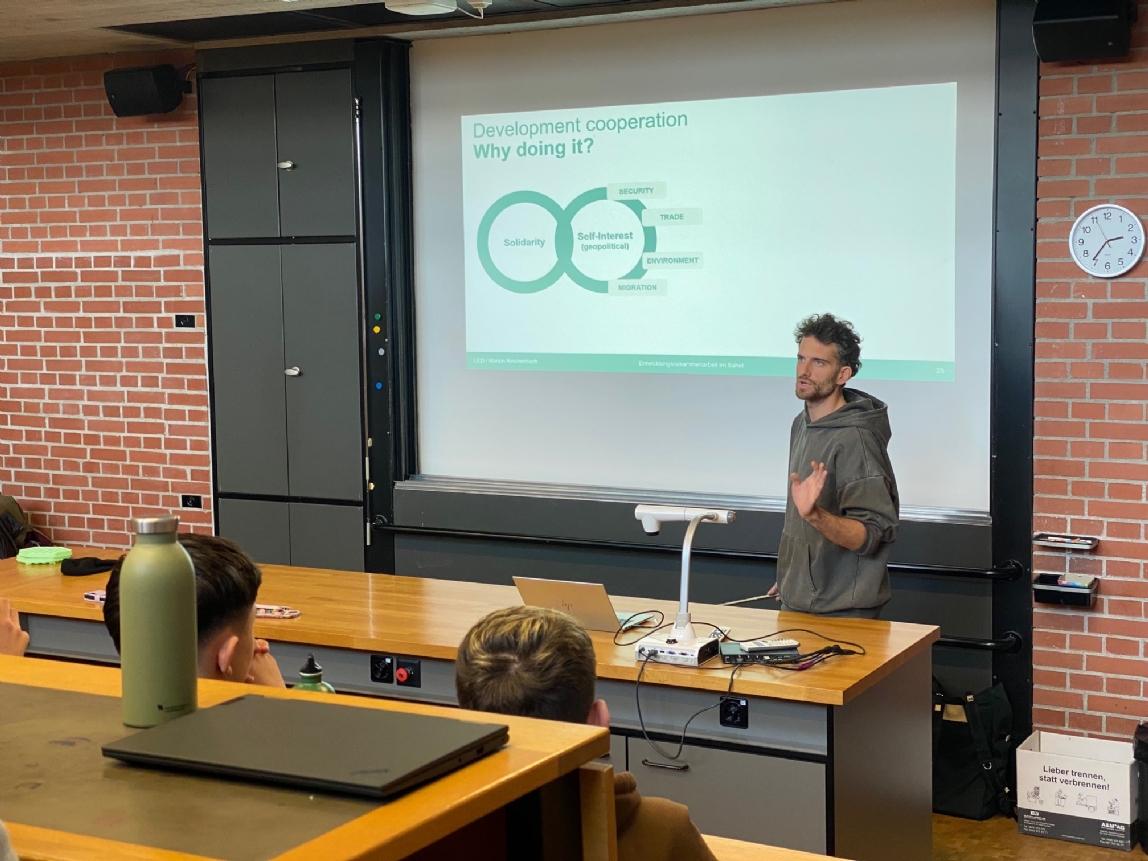Raising awareness in Liechtenstein: The LED in dialogue with young people
The Liechtenstein Development Service (LED) is not only active in its partner countries, but also actively engaged in raising awareness about development cooperation in Liechtenstein.
A central concern is to bring global interconnections, the importance of partnership, and the complexity of sustainable development closer to young people.
A successful example of this was the recent visit of the LED to a third-year class at the Liechtenstein Gymnasium as part of a geography lesson taught by teacher Rahel Schönenberger. The students were well prepared for the visit: they had dealt with key concepts such as the Human Development Index (HDI), and the distinctions between developing, emerging, and industrialised countries. They also discussed the role and empowerment of girls and women in the context of development cooperation, as well as the difference between emergency aid and long-term development cooperation.
Building on this foundation, the LED presented its work in Burkina Faso in two presentations and conveyed a typical food system of the Sahel region – with its various challenges, interconnections, and influencing factors. In addition, the role of state bilateral development cooperation and the specific working methods of the LED were explained in an illustrative way.
In a subsequent group exercise, the students took on the role of LED staff: they were asked to assess fictional project proposals based on jointly developed quality criteria and present their assessments to the class in a later double lesson. This method enabled a practical approach and encouraged critical engagement with development policy issues.
For the LED, the collaboration with the teacher and the students was an enriching experience. The young people showed great interest and strong engagement – a sign of how effective personal encounters and concrete case studies can be in strengthening global understanding.
Such direct exchanges are especially valuable for the LED: they create transparency about its work, promote understanding of the importance of development cooperation, and help to further anchor its complexity and relevance in Liechtenstein’s society.

